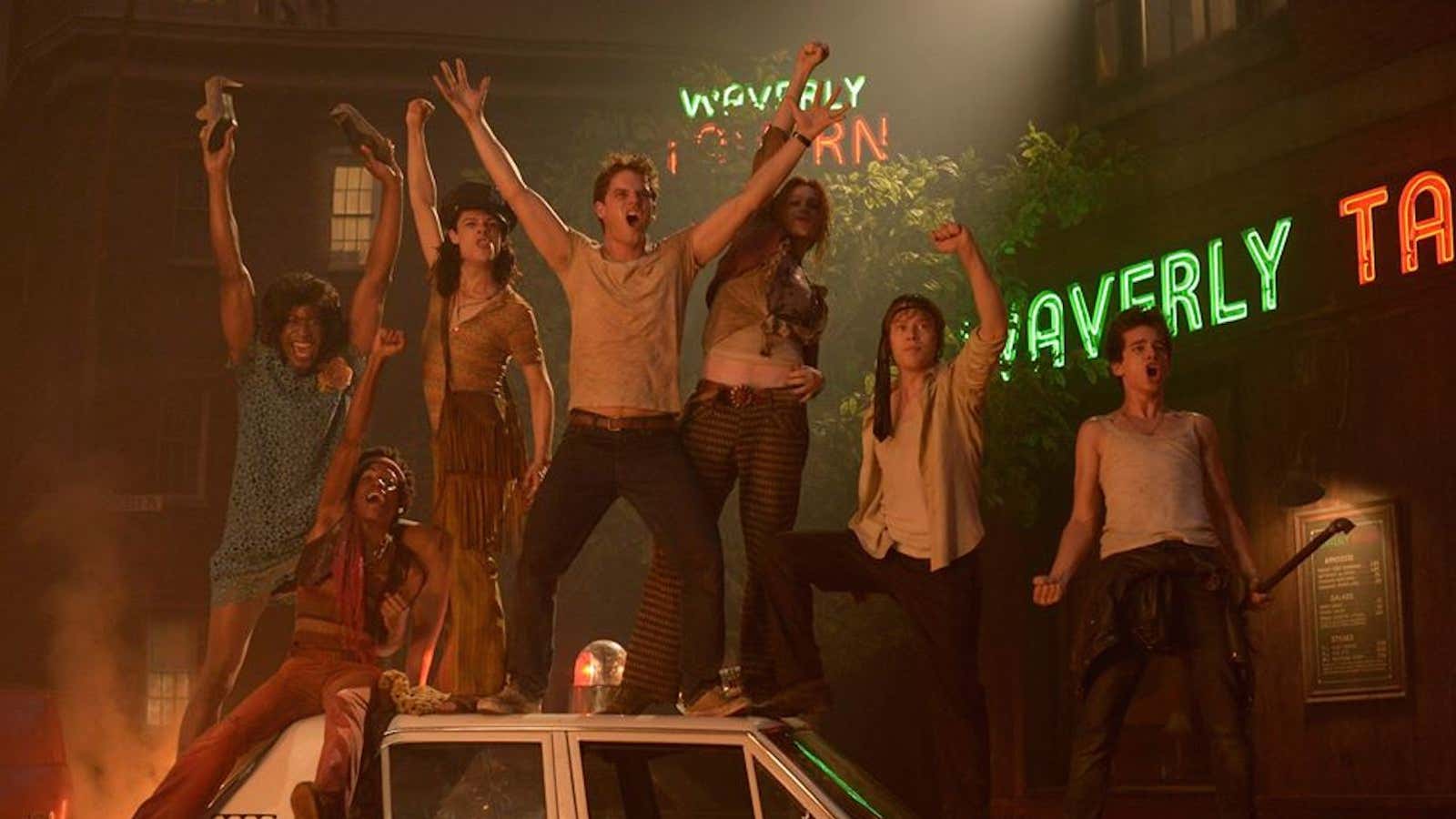Stonewall, the film, is going to create another Stonewall.
Well, metaphorically at least. The trailer, released Aug. 4, has caused something of a riot online. A groundswell of criticism from news sites and on social media has decried what appears to be the film’s “whitewashing” and “genderwashing” of the Stonewall Riots, a foundational political moment for LGBT Americans, which catalyzed the gay liberation movement.
Although the newly-released trailer is a mere two minutes long, activists are up in arms over its stated promise to show the “incredible true story” of the Stonewall Riots by focusing on the “unsung heroes” who created the movement: gay white men.
Directed by Hollywood heavyweight Roland Emmerich, Stonewall is centered around main protagonist Danny Winters, a cisgender—or very gender normative—young, gay white man. Winters not only functions as the lens through which we witness the Stonewall Riots; according to the trailer, he also throws the legendary first brick that launched the riots on the night of June 28, 1969.
This is an extraordinarily audacious choice by the film’s director, considering that the first bricks, shoes, and bottles were thrown not by a fictional gay white man but by the real unsung heroes of the movement: drag queens, trans people, and butch lesbians, most of whom were people of color. These activists included people like then 17-year-old Puerto Rican drag queen and trans activist Sylvia Rivera; black trans activist Marsha P. Johnson, who was celebrating her 25th birthday the night it all started; black trans activist Miss Major (Griffin-Gracy); black butch icon Stormé De Larverie, who legendarily was the first person to punch a cop; and bisexual feminist Brenda Howard, who organized the first pride parade after the riots and is known as the “Mother of Pride.”
These women—the LGBT community knows—crystallized the gay liberation movement. As AfterEllen’s Trish Bendix points out, none of these women are featured as main cast members in Stonewall. In fact, according to IMDb, De Larverie, Howard, Rivera, and Miss Major don’t even exist in Emmerich’s version. Johnson is the only trans woman given screen time—and she’s played by a “cisgender black actor.”
If the trailer is any indication, Stonewall is just the most recent example of why America cinema is in decline. There is no risk-taking, no truth-telling, no creativity. In its place, we find a continued fear of turning off white audiences. It is a fear born, Teresa Jusino notes over at the Mary Sue, from the kind of respectability politics that have plagued the gay rights movement in recent years.
But Hollywood’s liberal rewriting of history doesn’t stop with the LGBT community. The recent Aloha fiasco—in which white actress Emma Stone was cast as a biracial woman of Asian American descent—is case in point. One could also look to other fictionalized historical documents like Pride or The Theory of Everything or HBO’s HIV/AIDS drama The Normal Heart, all of which have been critiqued for their marginalization of women.
Commercialism breeds conservatism in mainstream Western cinema. Emmerich, the German director responsible for such cinematic beasts as Independence Day and The Day After Tomorrow, hinted as much in a recent interview with Vulture, in which he suggested that the narrative was changed predominantly for funding reasons.
Indeed, those working in the industry clearly believe that film backers are more likely to financially support films if they feature white, male, and straight bodies prominently on-screen. This despite the fact that according to the Motion Picture Association of America, women go to the movies in higher numbers than men, and Hispanic and African Americans report a higher per capita attendance than white moviegoers.
In the digital age, controlling the narrative equals power, which is why the LGBT community—particularly during this time of Black Lives Matter and the rise of the trans movement—has reacted so negatively with Stonewall’s early preview. Those in power are the ones who have their narratives passed on. They decide what is classified as “historical truth.”
Stonewall’s most egregious offence, therefore, is placing a fictitious, gay white character at the center of our history—at the foundation of our movement, of our truth. This film tells us that our lives don’t matter. In fact, according to this version of history we don’t exist—can’t exist—unless it “plays in Peoria.” Ultimately, the bitter hypocrisy of Stonewall is that by declaring its intent to spotlight the community’s “unsung heroes,” it may end up erasing them altogether.




